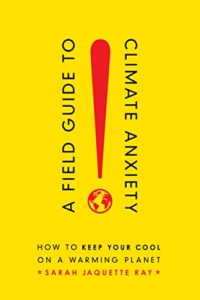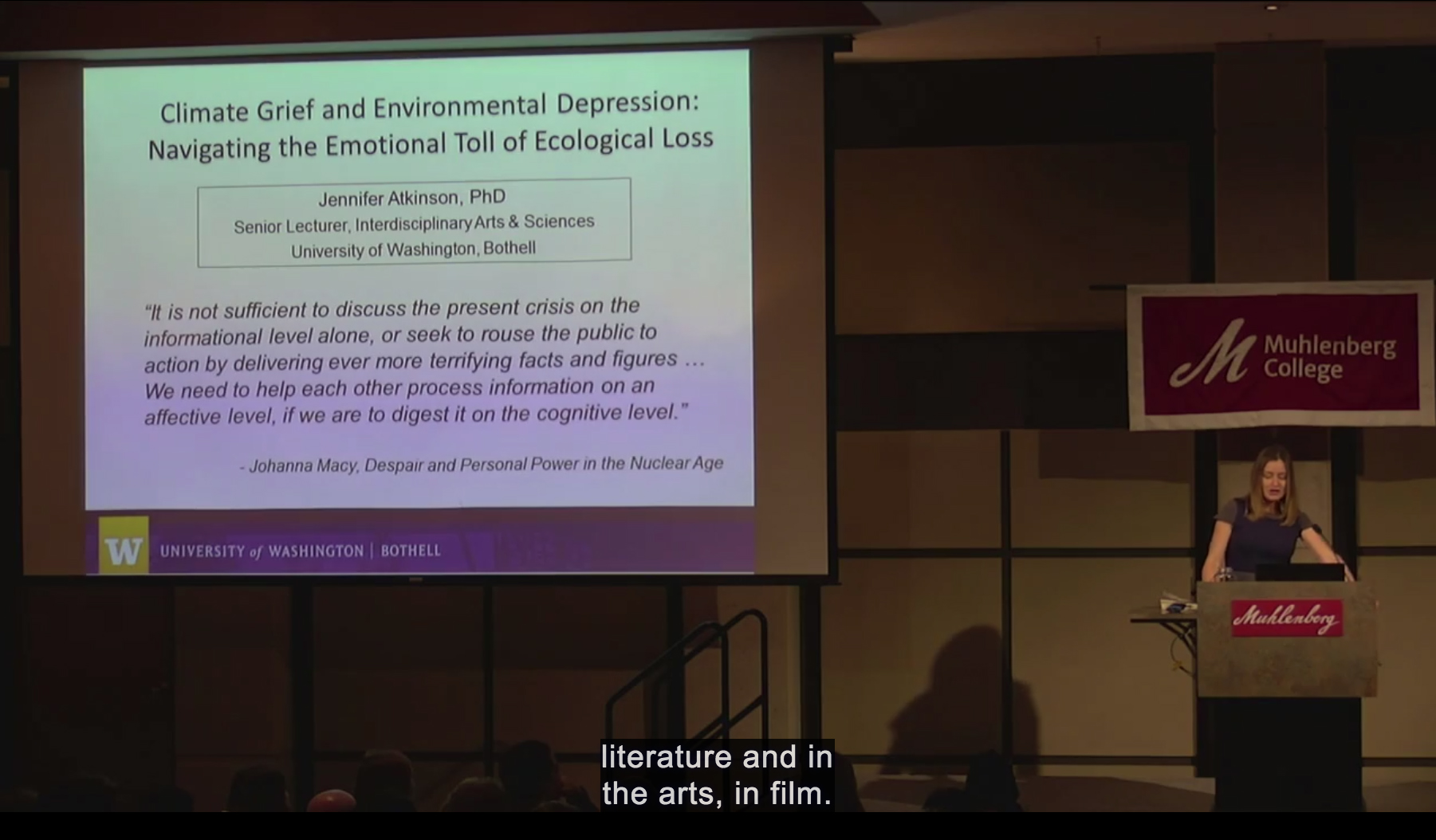Student from Sarah Ray’s class:
“My journey has been full of self-battles with anger, hope, times when I am motivated to enact change, and times of helplessness.”

Student from Sarah Ray’s class:
“Focusing on all the bad with only hints of light does not produce young adults ready and confident to make a difference in the world.”

Student from Sarah Ray’s class:
“Some days you see the news, and it’s mostly bad, and it makes you worse. But other days you see someone making a little change and you think, now I feel good! I can do something! I feel like just having a little bit of hope CAN overpower the doubts.”

Student from Sarah Ray’s class:
“There is no way to effectively deal with these issues, if we disconnect from our emotions.”

Student from Sarah Ray’s class:
“These are real world issues, that trigger real world emotions. If we neglect our emotions, we are lying to ourselves about the magnitude and effects on the world around us.”

Student from Sarah Ray’s class:
“I never grappled the full effect of being thrown all this negative material about the reality of our earth, the system we live in, and much more. I admit I put up a wall to block my anxiety, fear or hurt.”

Student from Sarah Ray’s class:
“I have experienced feelings of hope, hopelessness, joy, doubt, being overwhelmed, insignificance, powerful and many others. However, I also came to terms that all of those feelings are okay.”

CLIMATE CHANGE EMOTIONS
SARAH JAQUETTE RAY & NICOLE SEYMOUR
— co-curators —
M
otivated by a range of issues from social injustice to ecological degradation, students come to college classrooms ready to gain skills and credentials that will enable them to “be the change they want to see in the world.”
In recent years, however, educators in environmental studies and science (ESS), the disciplines that emphasize topics of biodiversity loss, climate change, and environmental injustice, find themselves ill-equipped to deal with students’ emotional responses to the depressing material.
Moreover, as students learn more about the connections between our current problems—climate change, the rise of xenophobic nationalism, growing inequality—and learn that their green lifestyle choices will not solve the problems, they become despondent, guilty, and nihilistic.
>> READ MORE
NEW BOOK: A Field Guide to Climate Anxiety, by Sarah Jaquette Ray (UC Press 2020)
Sarah Jaquette Ray discusses the book with Tim Sullivan, Director, UC Press (16 min):
FEATURED MEDIA RESOURCES
Jennifer Atkinson, PhD: Climate Depression & Environmental Angst: The Emotional Toll of Ecological Loss
Details:
Jennifer Atkinson, lecturer of interdisciplinary arts and sciences and associate director of the pre-major program and discovery core at the University of Washington, Bothell, spoke on Monday, February 4, 2020, Moyer Hall, Miller Forum, Muhlenberg College.
As a faculty member at the University of Washington, Bothell, Atkinson teaches “Environmental Grief and Anxiety: Building Hope in the Age of Climate Consequences.” Her lecture will explore that course and discuss dealing with the grief and trauma of environmental loss.
Atkinson’s recent book, “Gardenland: Nature, Fantasy and Everyday Practice,” explores American garden literature as a “fantasy genre” where people enact desires for sustainability, community, social justice, joyful labor, contact with nature and more vibrant and democratic cities. She has also published research on teaching environmental humanities through “multi-sensory” outdoor experience.
Per Espen Stoknes: How to transform apocalypse fatigue into action on global warming (TED 2017)
Details:
TED, Published on Dec 8, 2017: The biggest obstacle to dealing with climate disruptions lies between your ears, says psychologist and economist Per Espen Stokes. He’s spent years studying the defenses we use to avoid thinking about the demise of our planet — and figuring out a new way of talking about global warming that keeps us from shutting down. Step away from the doomsday narratives and learn how to make caring for the earth feel personable, do-able and empowering with this fun, informative talk.


